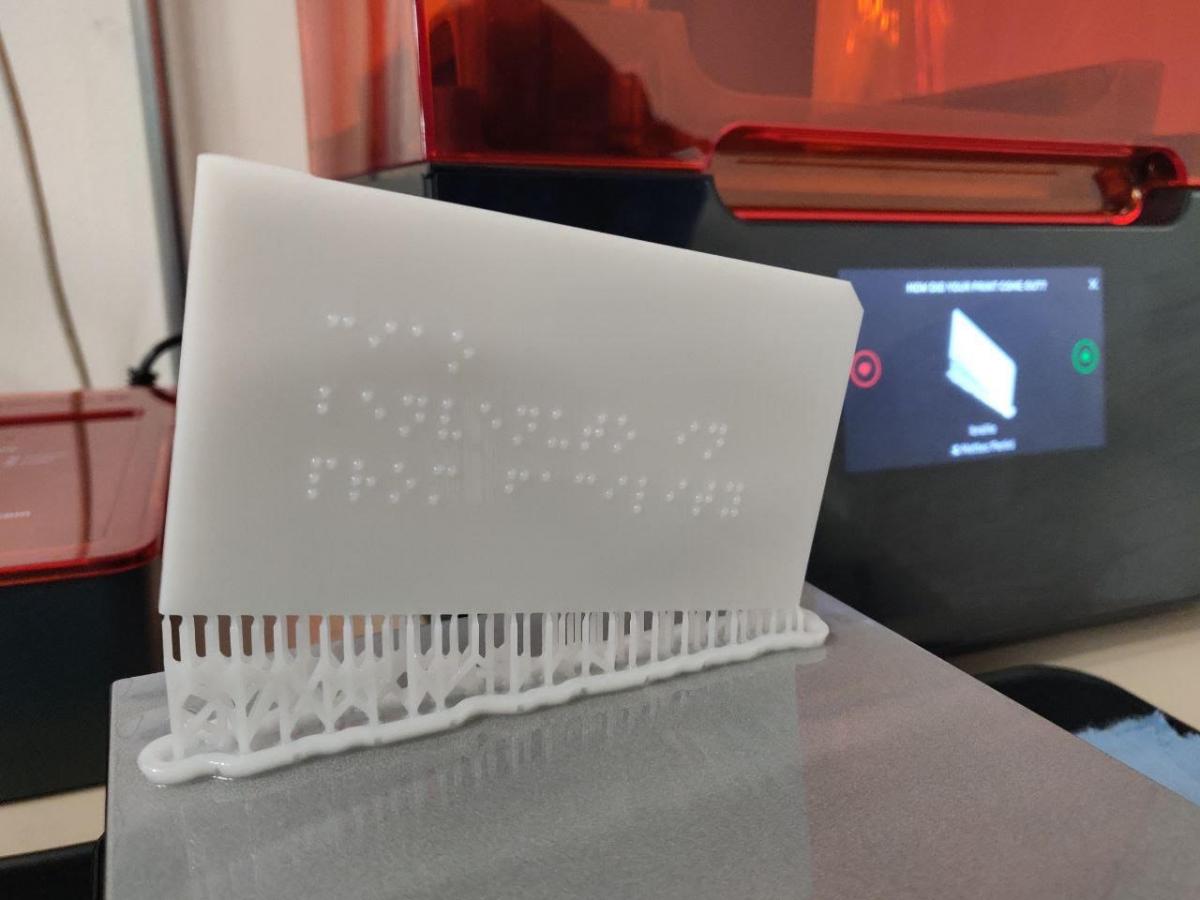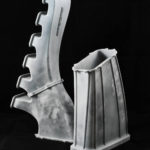Creating a sign panel or informational print-out in Braille can be complicated because the designer in charge of the design usually does not know the rules of the alphabet and is likely to run into mistakes in converting and copying characters.
To prevent this from happening, ProM Facility has designed a software that automatically generates the 3D files needed to print Braille license plates and sign materials.
The first tests using Multi Jet Fusion (MJF) and stereolithography (SLA) systems have confirmed the quality of definition and readability of the printed text. This is a key feature for this type of product because in the complex setting of the braille alphabet, the more clearly and coordinately the symbols are drawn, the greater the likelihood of communicating the correct message.
Developing the idea
The project is the brainchild of Matteo Perini, an engineer at Trentino Sviluppo’s mechatronic prototyping workshop, who developed the 3D file-generating software for braille print-outs. “The idea,” Perini explains, “came to me years ago during a previous work experience at the MUSE museum where the topic of social inclusion was on the agenda. So this year I started thinking about the feasibility of the software. I wasn’t sure about the outcome. Also, before I started with programming, I had to learn the Braille alphabet and how to convert letters into solid dots”.
The open source software available to everyone
The program developed by ProM Facility will be uploaded to the web in a few days and will be accessible to everyone free of charge so as to enhance the inclusive value of the product from a social point of view and encourage its use by project designers.
The first review
Giuliano Beltrami, vice-president of the Trentino section of the Italian Union of the Blind and Visually Impaired, called the project “very interesting because it meets a non-trivial need: to enable those who do not know Braille to communicate with the Braille writing system”.



